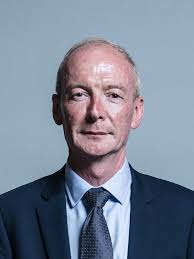The speech made by Pat McFadden, the Labour MP for Wolverhampton South East, in the House of Commons on 28 January 2021.
I thank everyone who made this debate possible. Holocaust Memorial Day stands as a reminder of where racism and the dehumanisation of others can lead. Many years ago, I travelled to Auschwitz-Birkenau with children from my constituency, on a visit organised by the Holocaust Educational Trust. No one who has made that visit will ever forget the experience. The industrial mass killing, the meticulous gathering of clothing and goods—not random acts of chaotic violence but the most organised programme of killing in history.
We recoil and say “Never again”, but since the holocaust there have been further atrocities in the world fuelled by racial hatred and the desire to demonise people because of their faith or because they are a minority of one kind or another. The lessons for today still matter. We should never engage in the conferring of collective guilt, we should openly reject conspiracy theories about dual loyalties or international cabals influencing world events, and we should reject the world view that results in a hierarchy of victimhood where some cannot accept that Jewish people could really be the victims of racism.
It is sadly the case that antisemitism still exists in our society, and indeed became more prominent in recent years, including in my own party. It never represented the Labour tradition, which at its best is a politics open to people of all faiths and none and which seeks to break down barriers, not reinforce them, yet still antisemitic views found a home in some of the darker corners of the left, as well as the far right. I am glad and relieved that, under new leadership, we have firmly turned a page on that era. To do so fully and completely, we must not only reject antisemitism but the worldview that gives rise to it, the conspiracy theories that go along with it and the hierarchy of victimhood that is blind to it.
The experience of remembering the holocaust should also inform the ways that we think about refugees today. The UK can be proud of the role we played not only during the war, in liberating the world from tyranny, but before the war, in making a new home for around 10,000 children through the Kindertransport programme. Each one of those children was given a new life and a new chance. Today, when child refugees are still trying to reach our shores, we should remember how precious that chance of a new life can be, and what an amazing contribution to our country can be made by those who are given a chance.
The lessons of Holocaust Memorial Day are not only those from history; they live with us every day. The greatest of all is that we share much more through our common humanity than anything that could drive us apart.
